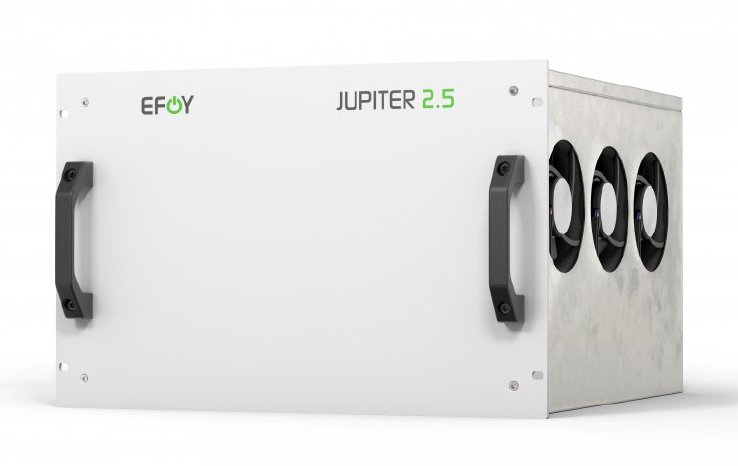- In the framework of an Equipment Sales Agreement (ESA), Ballard will deliver fuel cell stacks to adKor and SFC Energy, to be integrated into the Jupiter hydrogen fuel cell system.
- SFC Energy and adKor share production and sales activities for the supply of Jupiter systems and, together, are developing a new hydrogen fuel cell generation.
- SFC Energy and adKor will each place purchase orders with Ballard for their fuel cell stacks.
Contracts have been awarded to adKor for the supply of fuel cell backup power systems to support an initial tranche of radio tower sites in Germany – with the potential for a total of up to 1,500 radio tower sites – and adKor has sub-contracted a portion of the work to SFC Energy. As a result, adKor and SFC Energy have signed development partnership and licensing agreements and will share production and sales activities for the supply of the Jupiter system and, together, are developing a new hydrogen fuel cell generation.
As production work is committed, SFC Energy and adKor will each place purchase orders with Ballard for 2.9 kilowatt FCgen®-1020ACS fuel cell stacks, with each Jupiter backup power system utilizing from 1-to-3 of these fuel cell stacks. German regulations require radio tower sites to have a minimum of 72 hours of backup power, to ensure radio communications for critical users in the event of a power blackout.
Oben Uluc, Ballard Sales Director for EMEA said, “We are very pleased to announce these agreements with adKor and SFC Energy for integration of our air-cooled fuel cell stacks into the Jupiter backup power system. The German government’s decision to deploy fuel cell systems extensively for backup power at radio tower sites is a result of the technology’s proven reliability and effectiveness in the field over the past number of years.”
Hartmut Kordus, adKor Managing Director noted, “The fact that several federal states of Germany have opted for our hydrogen fuel cells to provide reliable emergency backup power to their critical infrastructures clearly proves the attractiveness of this environmentally friendly, innovative technology.”
Peter Podesser, SFC Energy Chairman and CEO added, “Looking forward, there are plans to equip up to 1,500 radio tower sites all across Germany. This first nationwide programme demonstrates the increasing importance of hydrogen fuel cells as a valid and reliable alternative to conventional diesel generators to provide power to critical infrastructures. We see major potential for them as power and backup power sources also in many other industrial applications, for example rail and transport monitoring, data centers and transformer stations, and telecommunication equipment.”
Fuel cell backup power systems offer a number of advantages over other emergency power solutions, including:
- High reliability and availability;
- Low operational cost;
- Zero-emissions, low noise and low vibration;
- Operation in extreme climates;
- Ease of use; and
- Compact footprint.


